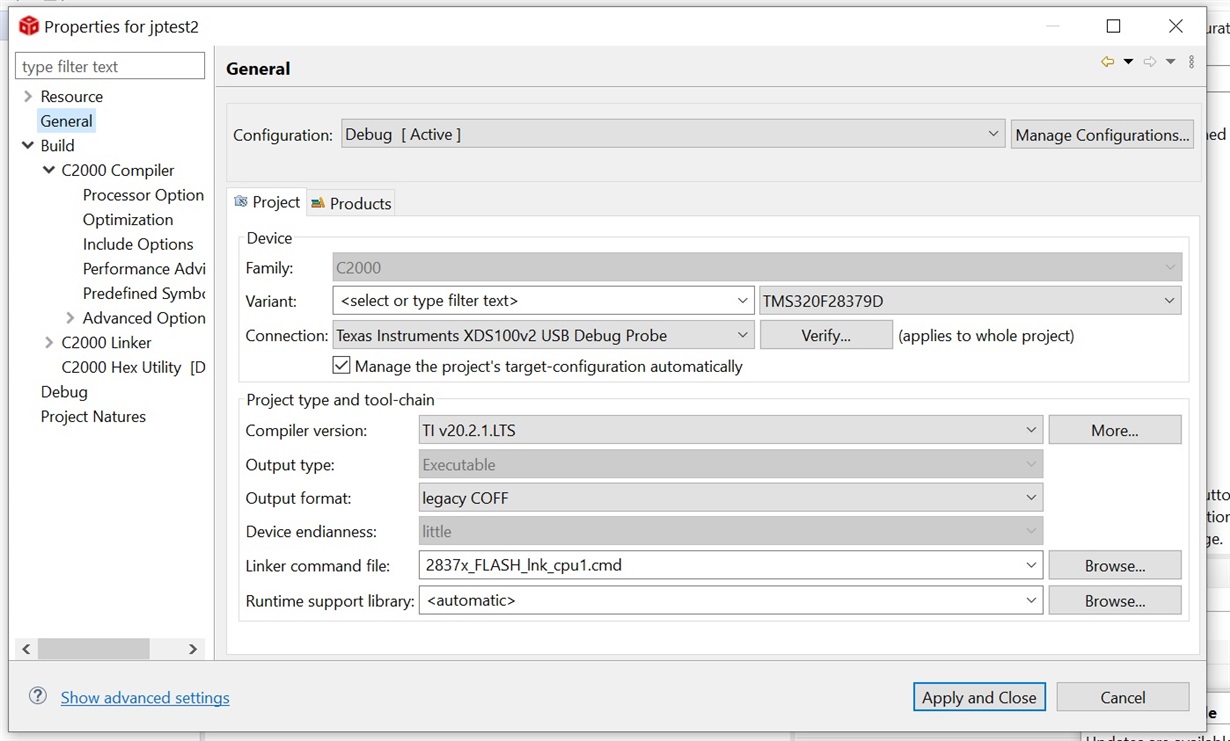Other Parts Discussed in Thread: TMDSHSECDOCK
Tool/software: Code Composer Studio
I tried to get going with TMDSCNCD28379D.
Set-up:
I connected USB to A:J1.
A:SW1 switch positions are on (this is the switch close to J8 USB host connector.
SW1 switch positions are both on (switches close to jumpers).
Code Composer Studio
Version: 10.1.1.00004
Based on advise on the forums I updated the emulator package.
Settings:
LD1=green, no other leds illuminating.
Then I get error message:
Error connecting to the target:
(Error -2131 @ 0x0)
Unable to access device register. Reset the device, and retry the operation. If error persists, confirm configuration, power-cycle the board, and/or try more reliable JTAG settings (e.g. lower TCLK).
(Emulation package 9.2.0.00002)
What do I need to do to get going with this?



